
===================
“Most of us, shrinking from the difficulties and dangers which beset the seeker after original answers to these riddles, are contented to ignore them altogether, or to smother the investigating spirit under the featherbed of respected and respectable tradition.”
—-
Thomas Henry Huxley
===============
“Not fearing death, nor shrinking for distress, But always resolute in most extremes”
.
William Shakespeare
=====================
Well.
Spend enough time in a corporate career and move up in a corporation and pretty much everyone gets some sort of media training <how to communicate  with media and effectively communicating your message>.
with media and effectively communicating your message>.
And before you think this is just about senior management folk let me tell you that all you have to do is work with any significant franchise organization and you will invest more energy and time doing media training at all levels than you really would like to do.
Why?
All you have to do is get burned once by some local TV station trying to find some ‘you would be shocked’ story and you will learn the value of media training outside the corporate headquarters and on-the-ground at the service & franchise level.
I have received some fabulous media training throughout my career and most likely have a couple of media training manuals and presentations on some thumb drive somewhere. Training can span from a simple one-sheet ‘do this and don’t do this’ to sitting down in front of a camera being taped and grilled by some inquisition-type corporate communications expert <who you will hate for weeks after>.
For most of us … all training is excruciatingly painful.
For most of us … all we seek is “an opportunity to keep our mouth shut.”
But, alas, corporations and senior management demand face time publicly and it is better to arm yourself than to go into the fight “winging it.”
Now.
Most relevant to my thought today is that this training pays off in spades when you are forced into a comparison situation. Think being on a panel or standing at side by side podiums. I wrote not long ago about the window of ‘stark contrast opportunities’ in which I discussed the upside in terms of building  value thru contrast.
value thru contrast.
Well.
As with anything good there is also a potential downside.
In a contrast situation there is a winner and a loser. And I don’t care how good a thinker you are, how good an instinctual communicator you are or how good an ‘explainer in chief’ you are … you cannot go into any comparison & contrast situation assuming you will be the better one, the winner by default, in a contrast situation.
Contrast situations are fraught with peril.
I won’t go into all the training crap but I will point out two core aspects which are relevant to being in a public contrast situation:
- The hard one: simplify without oversimplifying
This is hard. Really hard.
And usually takes a shitload of practice & experience … and even then you will not always get it right <except for those truly gifted communicators who make all the rest of us miserable in that because they can do it everyone believes they can also do it>. My belief is always to say just enough so people understand and assume someone will ask a question if they need more information. If you do that, your experience with questions, what questions you get, kind of hone your ‘what is too much and what is too little’.
But you need enough experience and questions in order to be able to bracket what is most efficient & effective.
That said.
Oversimplifying concludes in one of two places <1> you have no idea what you are talking about or <2> you are out of touch with details and depth of truth
You have to figure out a way to showcase you understand the complexity without boring the shit out of people and, ultimately, convincing them you really do know your shit. In addition … you want to give just enough nuance and depth to suggest an ‘attack’, or clarification <which is just another kiss of the comparison death> would be a waste of time.
I will not go into all the gory details of how to efficiently communicate complexity <which is actually the advice we should be giving everyone rather than “keep it simple”>.
Suffice it to say there are three effective ways to simplify without oversimplifying.
Bracket your thought with two support points.
Triangulate your thought by offering three reasons to believe.
Box your thought in with 4 simple reasons why your thought makes sense.
A lot of people suggest always providing your thought and one reason to believe support <simple linear support> but the best training I received made the point that this makes your thought more vulnerable to questioning and, if possible <unless you have one undeniable blockbuster reason to believe> you should figure out a simple way to show simple complexity demands nuances smartness.
I imagine what I am saying in this aspect is you want to protect your words, thoughts and ideas from shrinking. And the way to do so is to effectively build a wall around them. Without the wall, the protection, the thought can get squeezed until it no longer exists … and you shrink a little every time that happens.
- The easy one: avoid hyperbole like it is the plague
Hyperbole creates a gap, an empty space, in between reality and some quasi-imagined reality.
Uhm.
 Empty space to a listener/questioner/debater is like sugar for ants. Our tendency is almost always to make problems look bigger and successes more successful … it makes us look more heroic. But in our tendency to do so it actually … well … shrinks us. The truth is many of us think our jobs are fairly mundane and when discussing what we do, and have done, publicly we think “who the hell wants to hear this?” and then head down the path to make what we do, or did, look less mundane and more challenging or exciting.
Empty space to a listener/questioner/debater is like sugar for ants. Our tendency is almost always to make problems look bigger and successes more successful … it makes us look more heroic. But in our tendency to do so it actually … well … shrinks us. The truth is many of us think our jobs are fairly mundane and when discussing what we do, and have done, publicly we think “who the hell wants to hear this?” and then head down the path to make what we do, or did, look less mundane and more challenging or exciting.
Media training helps you see this.
And what you do is not worry about what you do but rather show how much you love what you do, or did, which breathes some helium into it and makes it look bigger. Suffice it to say it is incredibly difficult for someone to shrink what you like and what you are passionate about than it is to poke a hole in the empty space created by hyperbole and shrink the entire thought to a shriveled balloon status.
Ok.
Why did I bring this up today?
Well.
Sigh.
It becomes more obvious everyday … the shrinking of America right before our eyes.
Yesterday I watched President Donald J Trump stand at one podium and the president of Columbia, Juan Manuel Santos, at another podium. As they each  spoke I watched Trump shrink before our eyes and America along with him.
spoke I watched Trump shrink before our eyes and America along with him.
The adult at the front of the room was a president … just of Columbia.
No offense to Columbia or the Columbian president but I don’t expect a country whose economy is 42 times smaller than the US Economy to have a president who sounds smarter, speaks smarter, shares smarter information and handles himself more smartly than the president of the USA. Let alone watching the poor Columbian President trying to be diplomatic when he clearly wanted to look at Trump and say “are you a complete fucking idiot?”
It bothered me a little less as we watched Angela Merkel of Germany a month ago stand side by side with Donald J Trump and his words and speech made him shrink before our eyes <and earned Merkel the title of ‘leader of the free world’>.
Yeah.
That’s tough competition for any president so while I cringed at the shrinkage I figured it may be one of Donald J’s most difficult contrast & comparison situations.
But in between yesterday’s unfortunate public display and Merkel’s hint of what was to come we see time and time again he is placed side by side with the leader of another country and he shrinks in comparison as soon as they both start talking.
By the way … this is a problem.
Not just for Donald J Trump but also for America.
When he shrinks in comparison America shrinks globally. This doesn’t mean we will not retain the world’s largest economy which demands that people have to deal with America regardless … but … it effectively shrinks our leadership role globally.
Sigh.
I honestly don’t know what I would do with Donald J Trump if I was his communications director. I know I would be honest with the Trumpster and say “stop giving interviews because you don’t know when to stop talking” … “don’t answer in paragraphs but rather in sentences because you cannot assemble a coherent paragraph thought” … “never talk about yourself when standing side by side with a peer” … “lets schedule some more of those fake campaign speeches in front of your few rabid followers so you can feel free and complain about everyone & everything and explain how great you are because they will love it.”
I also know my honesty would get my ass fired so quickly don’t blink because you would miss my time in the White House.
Media training is a pain in the ass but in its pain it grinds you down to reality about yourself. You learn to duck the bad comparisons a little better and seek the opportunities to contrast positively a little better.

I don’t believe we need a member of the Mensa society to be the president or even to be effective in positively contrasting themselves in a tough situation in which the other is smart, thoughtful & articulate. But you do need someone who is self-aware in the moment & environment. Media training almost above any other training you may receive in business harshly introduces you to self-awareness.
What I do know is that without some very harsh media and communications training President Trump will continue to shrink in comparison time and time again.



 in the Trump white house personnel.
in the Trump white house personnel.
 Most people learn this as soon as they move from group management to department management <you cannot fire everyone and rehire only your people> and absolutely learn this lesson as soon as you move into the C-level positions.
Most people learn this as soon as they move from group management to department management <you cannot fire everyone and rehire only your people> and absolutely learn this lesson as soon as you move into the C-level positions.


 Because if they can work together well than there is a better chance that the organization will not do stupid shit even if you make a stupid decision, your crazy will come to life as not-so-crazy pragmatism and knee-jerk spontaneous crazy asshat tweets simply get absorbed into seamless actions which make the tweets look a little less spontaneous, a little less knee jerk, a little less crazy … but still asshat because that is who you are.
Because if they can work together well than there is a better chance that the organization will not do stupid shit even if you make a stupid decision, your crazy will come to life as not-so-crazy pragmatism and knee-jerk spontaneous crazy asshat tweets simply get absorbed into seamless actions which make the tweets look a little less spontaneous, a little less knee jerk, a little less crazy … but still asshat because that is who you are. does.
does.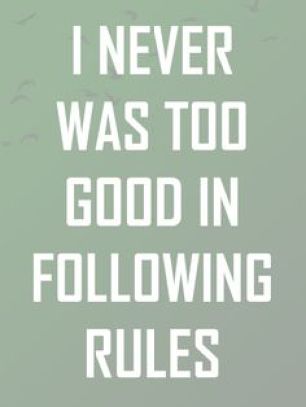
 We have a shitload of regulations, laws and rules to abide by every day.
We have a shitload of regulations, laws and rules to abide by every day.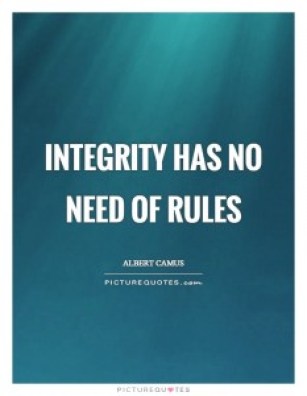 tend to believe is ‘integrity driven behavior’ and with each push what is acceptable becomes broader and broader.
tend to believe is ‘integrity driven behavior’ and with each push what is acceptable becomes broader and broader. But let’s remember … most times norms reside within what is a larger legally acceptable behavior.
But let’s remember … most times norms reside within what is a larger legally acceptable behavior.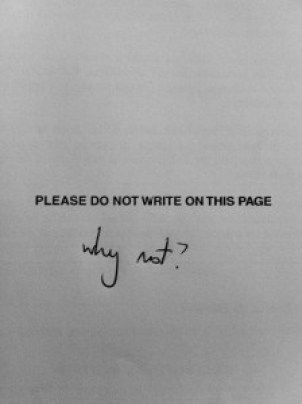
 But not everyone thinks that way.
But not everyone thinks that way.
 knows where they are going and how they will go about doing it.
knows where they are going and how they will go about doing it. stew over all the long term type shit … but … we all know the holy grail of business success actually resides in ‘windows of opportunity.’
stew over all the long term type shit … but … we all know the holy grail of business success actually resides in ‘windows of opportunity.’
 exactly match up with the standard “this is how you are supposed to do it” management guides. Waiting for opportunities isn’t something that they teach you in ‘how to aggressively beat the crap out of your competition in the industry” school.
exactly match up with the standard “this is how you are supposed to do it” management guides. Waiting for opportunities isn’t something that they teach you in ‘how to aggressively beat the crap out of your competition in the industry” school.
 your dismay you look around the room and another frickin’ window is open.
your dismay you look around the room and another frickin’ window is open.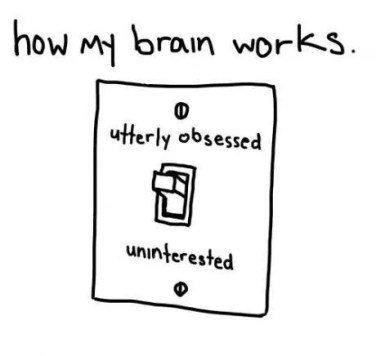 It’s all about uncovering the most relevant time to be relevant <and interesting>. Pick the wrong time and you waste $’s because the consumer just doesn’t care. Be interesting at the right time and the brand becomes relevant <and sales increase>.
It’s all about uncovering the most relevant time to be relevant <and interesting>. Pick the wrong time and you waste $’s because the consumer just doesn’t care. Be interesting at the right time and the brand becomes relevant <and sales increase>. the other.
the other.
 to be calculated communicating.
to be calculated communicating.
 Things are said that just may not be exactly right.
Things are said that just may not be exactly right. A leader must hold the center verbally. It can sometimes be held with vision and soaring rhetoric but more often it is captures in the calculated pragmatic words which are easily carried by those on the edges out beyond the organization.
A leader must hold the center verbally. It can sometimes be held with vision and soaring rhetoric but more often it is captures in the calculated pragmatic words which are easily carried by those on the edges out beyond the organization. fraying at the edges of the organization.
fraying at the edges of the organization.
 Poetry, on the other hand, seems most powerful when it creates something in and of itself. And … if you buy that thought … then what poets do is underrated.
Poetry, on the other hand, seems most powerful when it creates something in and of itself. And … if you buy that thought … then what poets do is underrated.


 Those last two lines are fabulous.
Those last two lines are fabulous.
 poem with contemporary imagery , moving at a faster pace than the words themselves, to create that symbolic tension of death and slowing death <by making Life faster>.
poem with contemporary imagery , moving at a faster pace than the words themselves, to create that symbolic tension of death and slowing death <by making Life faster>.
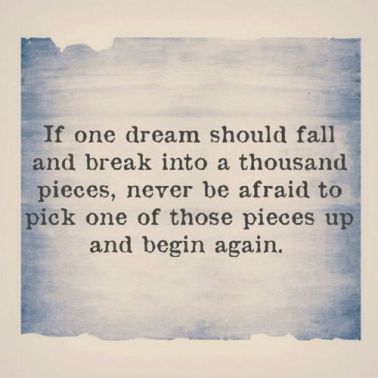
 As for me?
As for me?


 embarrassing.
embarrassing. Everyone takes personal risks in business.
Everyone takes personal risks in business.
 In business … if you have nothing to offer but used ideas, you are just a used car salesman.
In business … if you have nothing to offer but used ideas, you are just a used car salesman.





 the more difficult it was to break free from the grip of what society expected and demanded of us.
the more difficult it was to break free from the grip of what society expected and demanded of us.
